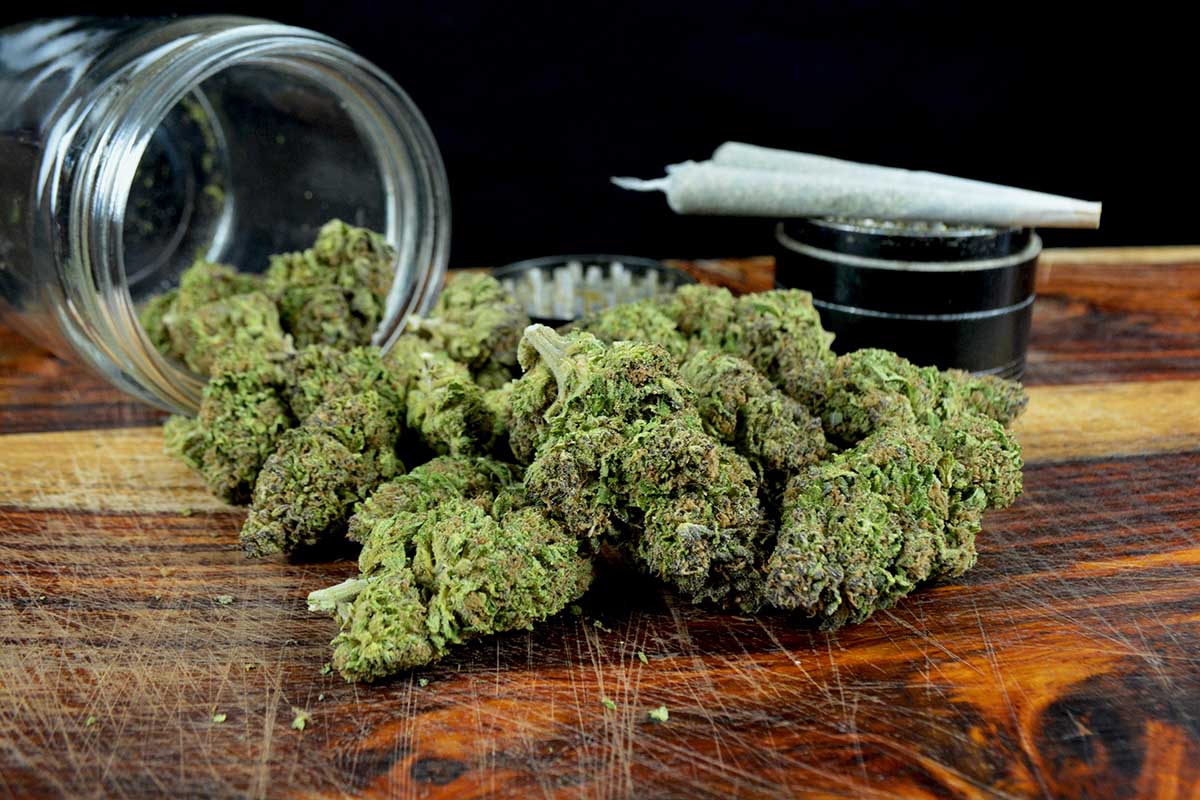California Speaks Loudly On Marijuana In the Workplace

California employees and employers have been granted some relief with the passing of California Assembly Bill AB2188. We have listed the bill here so that as an employer, you can see the text as written and adopted by the California assembly. As an employee, here you may discover answers to the questions and concerns you put to our collectors regularly.
Collectors were surveyed and donor’s biggest complaints and concerns center around testing positive for marijuana when they used once, or not recently. AB2188 provides a direct answer to what employees and employers need to know about marijuana use in California.
Tetrahydrocannabinol (THC) is the psychoactive ingredient in marijuana that indicates impairment. The presence of THC does not always mean a person is impaired.
A portion of the new law states:
“It is unlawful for an employer to discriminate against a person in hiring, termination, or any term or condition of employment, or otherwise penalizing a person, if the discrimination is based upon any of the following:
(1) The person’s use of cannabis off the job and away from the workplace. This paragraph does not prohibit an employer from discriminating in hiring, or any term or condition of employment, or otherwise penalize a person based on scientifically valid preemployment drug screening conducted through methods that do not screen for Non psychoactive cannabis metabolites.
(2) An employer-required drug screening test that has found the person to have Non psychoactive cannabis metabolites in their hair, blood, urine, or other bodily fluids.”
Read the new law AB2188 in its entirety here.
Assembly Bill No. 2188
CHAPTER 392
An act to add Section 12954 to the Government Code, relating to employment.
[Approved by Governor September 18, 2022. Filed with Secretary of State September 18, 2022.]
legislative counsel’s digest
AB 2188, Quirk. Discrimination in employment: use of cannabis.
Existing law, the California Fair Employment and Housing Act, protects and safeguards the right and opportunity of all persons to seek, obtain, and hold employment without discrimination, abridgment, or harassment on account of race, religious creed, color, national origin, ancestry, physical disability, mental disability, medical condition, genetic information, marital status, sex, gender, gender identity, gender expression, age, sexual orientation, or military and veteran status. The act prohibits various forms of employment discrimination and empowers the Civil Rights Department to investigate and prosecute complaints alleging unlawful practices.
This bill, on and after January 1, 2024, would also make it unlawful for an employer to discriminate against a person in hiring, termination, or any term or condition of employment, or otherwise penalize a person, if the discrimination is based upon the person’s use of cannabis off the job and away from the workplace, except for preemployment drug screening, as specified, or upon an employer-required drug screening test that has found the person to have Non psychoactive cannabis metabolites in their hair, blood, urine, or other bodily fluids. The bill would exempt certain applicants and employees from the bill’s provisions, including employees in the building and construction trades and applicants and employees in positions requiring a federal background investigation or clearance, as specified. The bill would specify that the bill does not preempt state or federal laws requiring applicants or employees to be tested for controlled substances as a condition of employment, receiving federal funding or federal licensing-related benefits, or entering a federal contract.
The people of the State of California do enact as follows:
SECTION 1. The Legislature finds and declares both of the following:
Tetrahydrocannabinol (THC) is the chemical compound in cannabis that can indicate impairment and cause psychoactive effects. After tetrahydrocannabinol is metabolized, it is stored in the body as a Non psychoactive cannabis metabolite. These metabolites do not indicate impairment, only that an individual has consumed cannabis in the last few weeks.
The intent of drug tests is to identify employees who may be impaired. While there is consensus that an employee should not arrive at a worksite high or impaired, when most tests are conducted for cannabis, the results only show the presence of the Non psychoactive cannabis metabolite and have no correlation to impairment on the job.
As science has improved, employers now have access to multiple types of tests that do not rely on the presence of Non psychoactive cannabis metabolites. These alternative tests include impairment tests, which measure an individual employee against their own baseline performance and tests that identify the presence of THC in an individual’s bodily fluids.
SEC. 2. Section 12954 is added to the Government Code, to read: 12954. (a) It is unlawful for an employer to discriminate against a person in hiring, termination, or any term or condition of employment, or otherwise penalizing a person, if the discrimination is based upon any of the following:
The person’s use of cannabis off the job and away from the workplace. This paragraph does not prohibit an employer from discriminating in hiring, or any term or condition of employment, or otherwise penalize a person based on scientifically valid preemployment drug screening conducted through methods that do not screen for Non psychoactive cannabis metabolites.
An employer-required drug screening test that has found the person to have Non psychoactive cannabis metabolites in their hair, blood, urine, or other bodily fluids.
Nothing in this section permits an employee to possess, to be impaired by, or to use, cannabis on the job, or affects the rights or obligations of an employer to maintain a drug- and alcohol-free workplace, as specified in Section 11362.45 of the Health and Safety Code, or any other rights or obligations of an employer specified by federal law or regulation.
This section does not apply to an employee in the building and construction trades.
This section does not apply to applicants or employees hired for positions that require a federal government background investigation or security clearance in accordance with regulations issued by the United States Department of Defense pursuant to Part 117 of Title 32 of the Code of Federal Regulations, or equivalent regulations applicable to other agencies.
This section does not preempt state or federal laws requiring applicants or employees to be tested for controlled substances, including laws and regulations requiring applicants or employees to be tested, or the way they are tested, as a condition of employment, receiving federal funding or federal licensing-related benefits, or entering a federal contract.
This section shall become operative on January 1, 2024.

